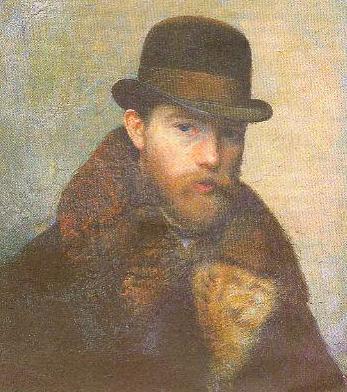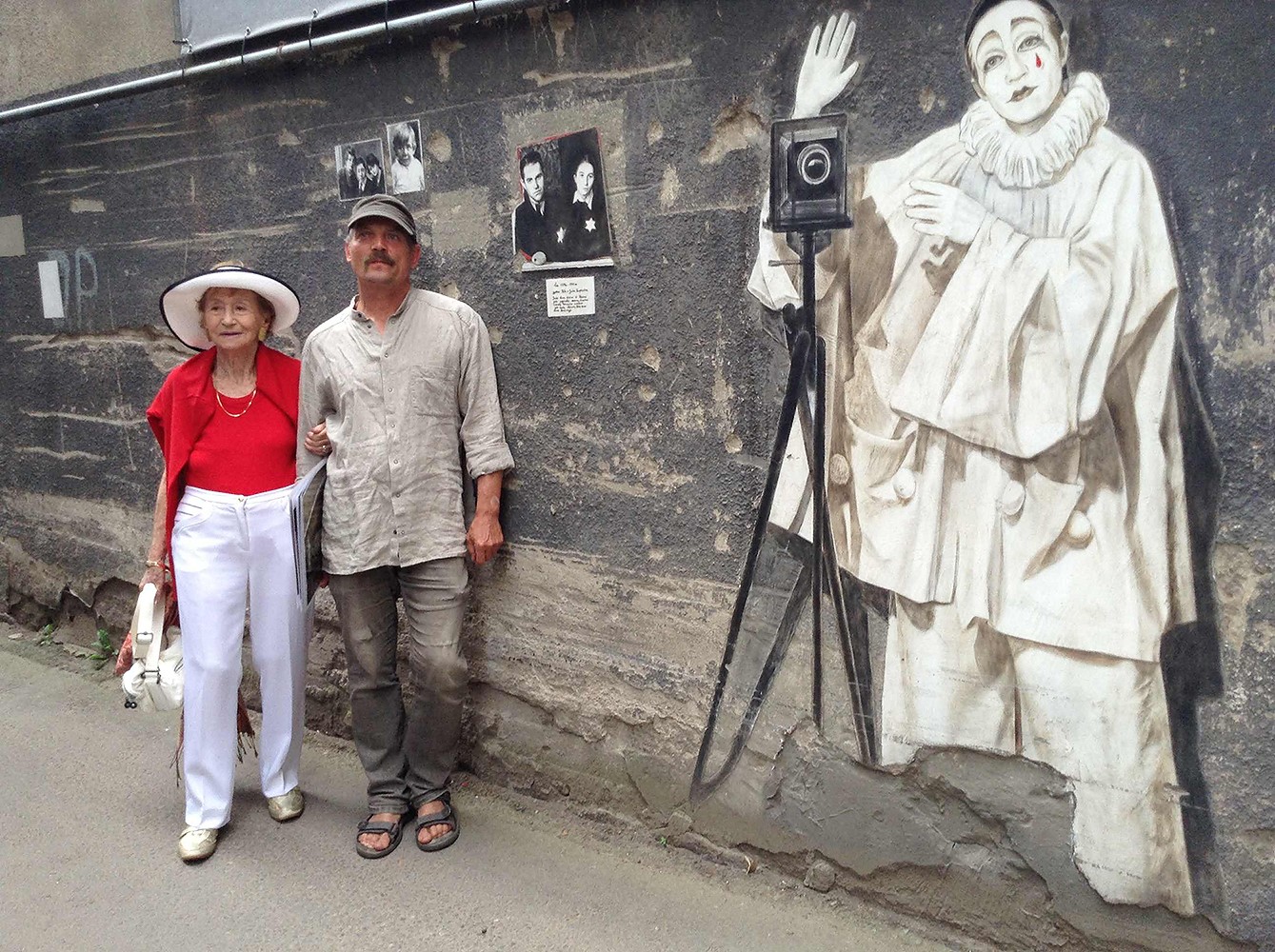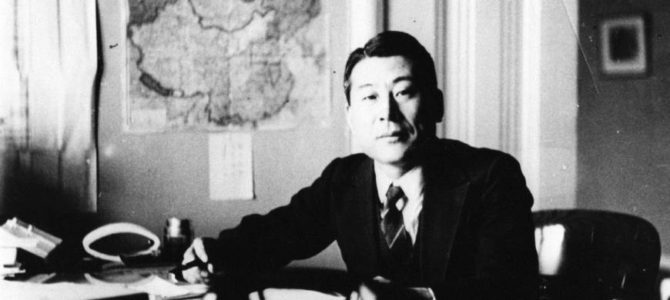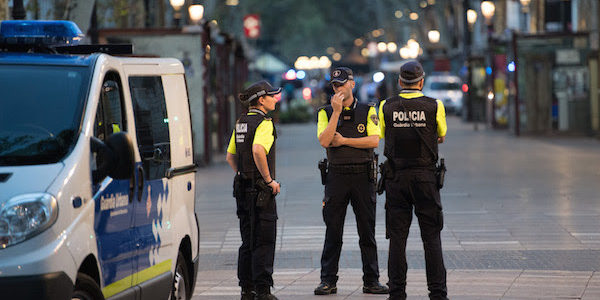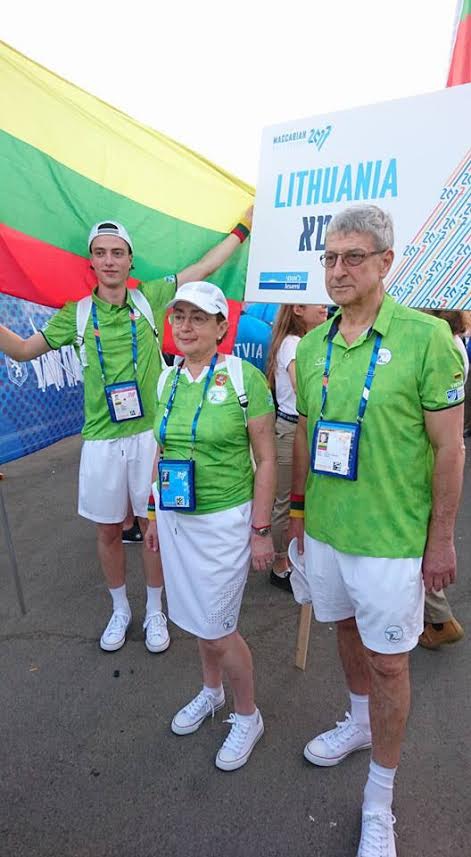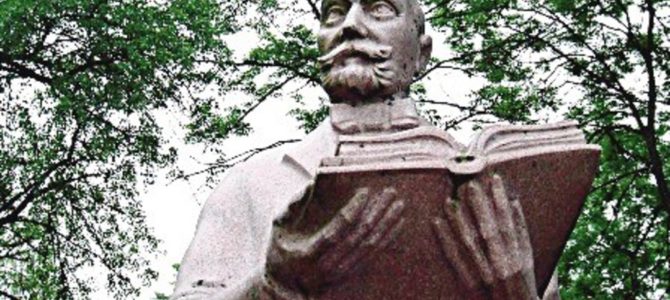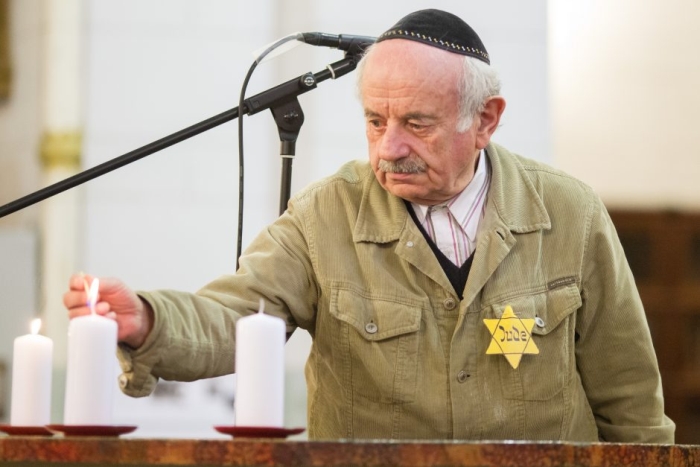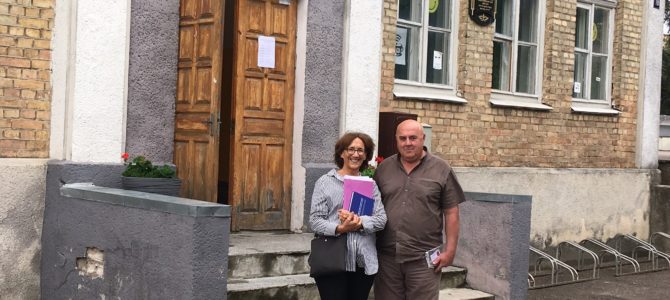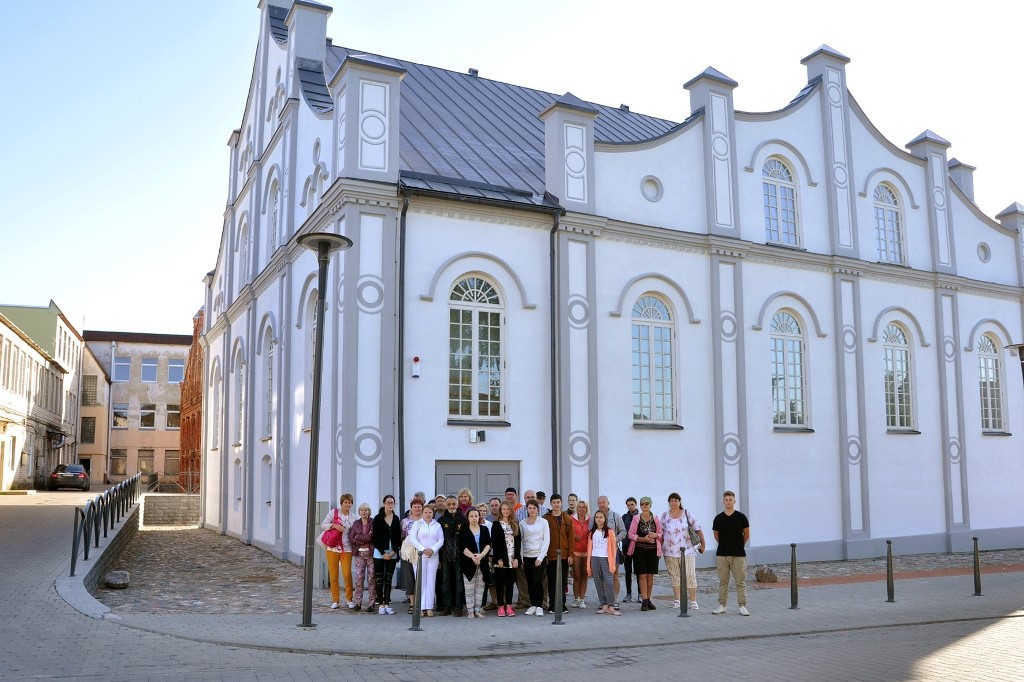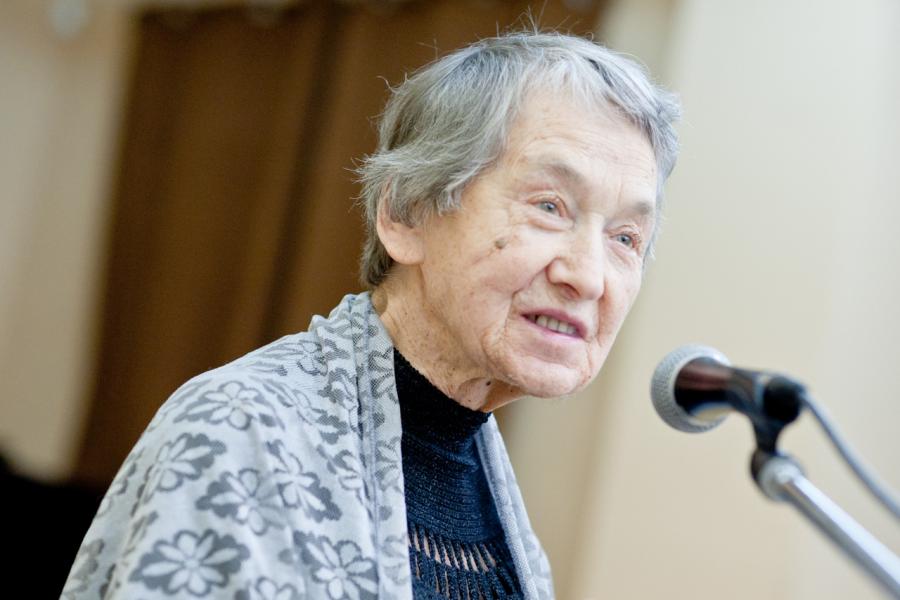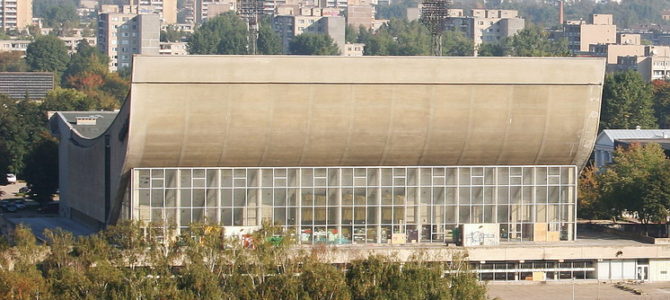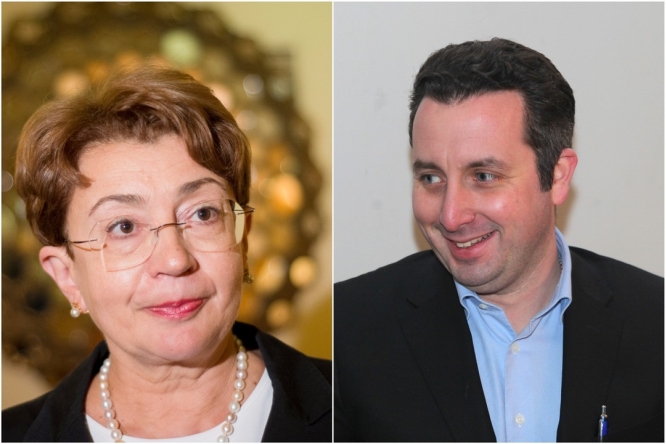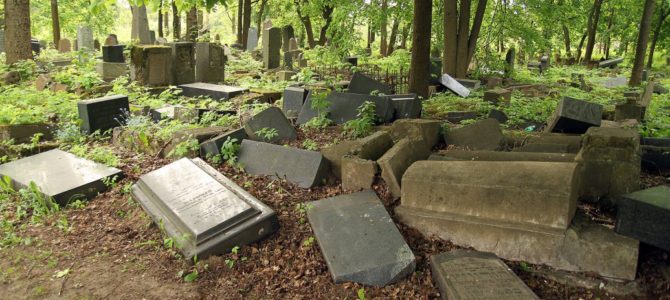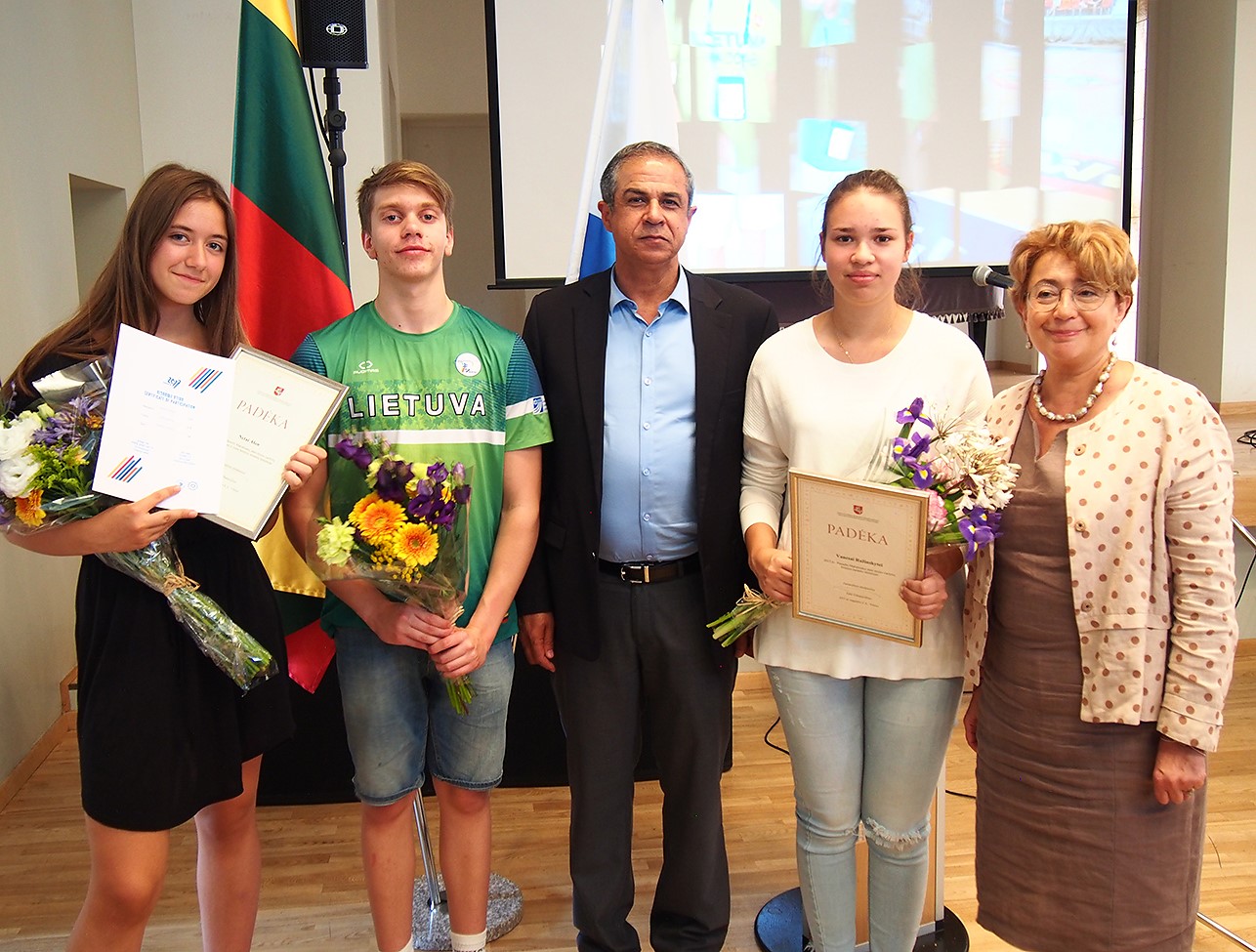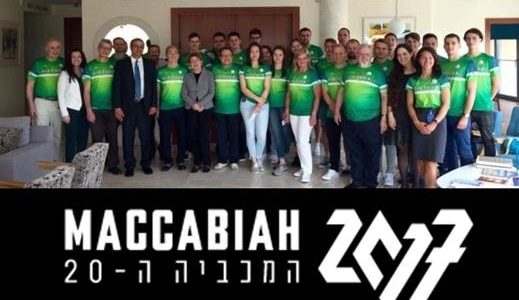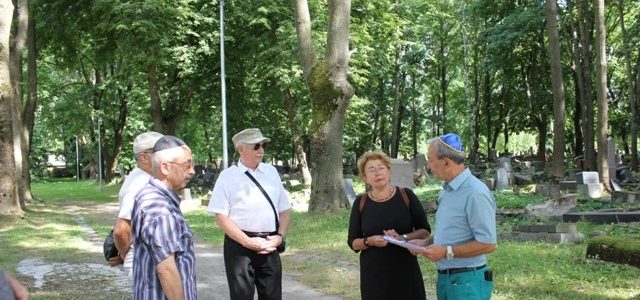
Faina Kukliansky, chairwoman of the Lithuanian Jewish Community, visited the old Jewish cemetery in the Žaliakalnis district of Kaunas August 15 at the invitation of the Kaunas Jewish Community. She and members of the Kaunas Jewish Community, Kaunas-area religious Jewish community and Kaunas Hassidic Synagogue Community and together they studied maps of the cemetery, toured the territory and learned about recent public controversy occasioned by a cemetery neighbor planting decorative trees in the area. Despite the state holiday, Jewish cemetery administrator Edmundas Mikalauskas of municipality’s cemetery supervision enterprise cheerfully agreed to attend the meeting. KJC chairman Gercas Žakas and other participants outlined their positions on the controversy: not only do they approve of the plantings in the area, but enthusiastically welcome and congratulate the person demonstrating this sort of initiative and their beautification of part of the cemetery, in stark contrast to the weedy bushes growing up in other parts of it.
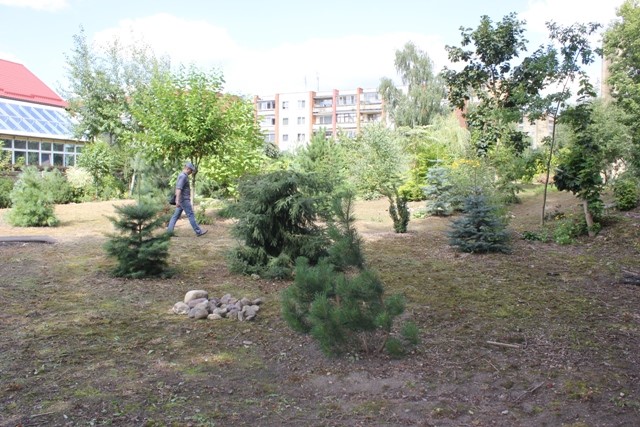
What seemed to cause consternation and surprise wasn’t the landscaping, but the reaction by responsible parties to the artificial scandal generated by one Kaunas figure who always attempts to draw attention to himself through various destructive actions (all the more so since there are plots of land within the cemetery which have caused much more controversy, for example, people living within the cemetery territory for many years who have gardens and even keep animals next to their homes). The KJC chairman mooted the idea of revising the boundaries of the cemetery because the cemetery, which ceased operating in 1952, is constituted of 8 hectares, a large part of which includes empty plots of grass where no burials were ever made. The cemetery, established in 1861, was expanded several times with a view to the future when the Kaunas Jewish community was quite large to meet future demand. Currently there isn’t great demand for grave sites and the cemetery isn’t operational anyway. There is, however, a working Jewish cemetery in Kaunas on H. ir O. Minkovskių street. The LJC chairwoman said she would examine the information received and make a decision soon regarding the planting of decorative trees there.


